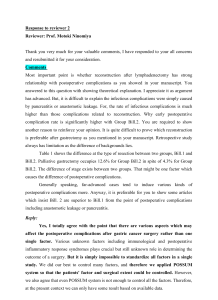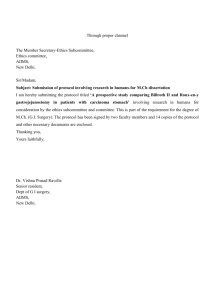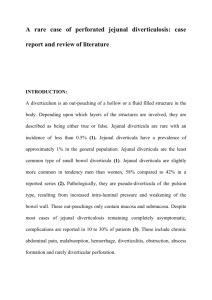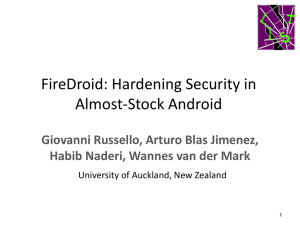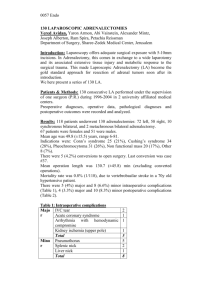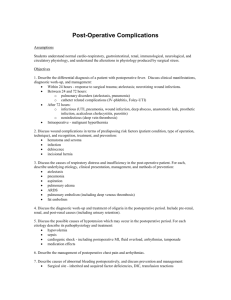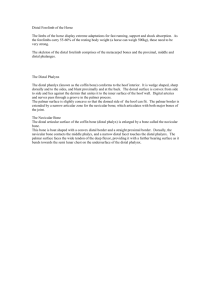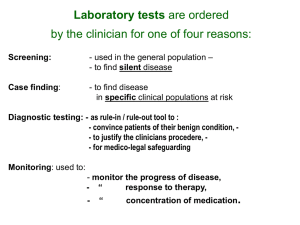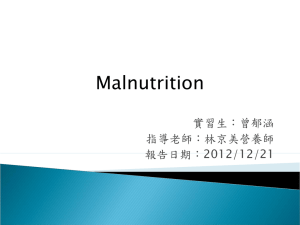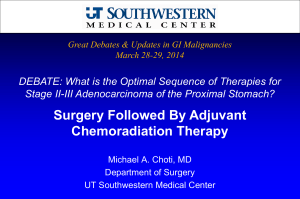Comparative Study of Reconstructive Procedures after Distal
advertisement
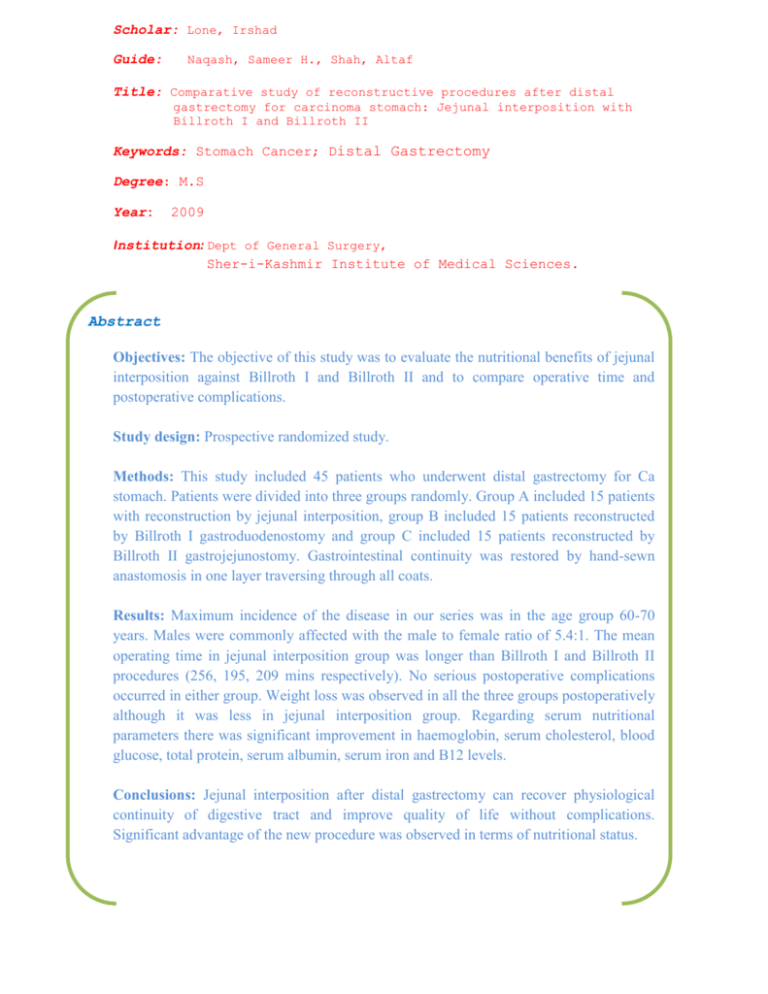
Scholar: Lone, Irshad Guide: Naqash, Sameer H., Shah, Altaf Title: Comparative study of reconstructive procedures after distal gastrectomy for carcinoma stomach: Jejunal interposition with Billroth I and Billroth II Keywords: Stomach Cancer; Distal Gastrectomy Degree: M.S Year: 2009 Institution: Dept of General Surgery, Sher-i-Kashmir Institute of Medical Sciences. Abstract Objectives: The objective of this study was to evaluate the nutritional benefits of jejunal interposition against Billroth I and Billroth II and to compare operative time and postoperative complications. Study design: Prospective randomized study. Methods: This study included 45 patients who underwent distal gastrectomy for Ca stomach. Patients were divided into three groups randomly. Group A included 15 patients with reconstruction by jejunal interposition, group B included 15 patients reconstructed by Billroth I gastroduodenostomy and group C included 15 patients reconstructed by Billroth II gastrojejunostomy. Gastrointestinal continuity was restored by hand-sewn anastomosis in one layer traversing through all coats. Results: Maximum incidence of the disease in our series was in the age group 60-70 years. Males were commonly affected with the male to female ratio of 5.4:1. The mean operating time in jejunal interposition group was longer than Billroth I and Billroth II procedures (256, 195, 209 mins respectively). No serious postoperative complications occurred in either group. Weight loss was observed in all the three groups postoperatively although it was less in jejunal interposition group. Regarding serum nutritional parameters there was significant improvement in haemoglobin, serum cholesterol, blood glucose, total protein, serum albumin, serum iron and B12 levels. Conclusions: Jejunal interposition after distal gastrectomy can recover physiological continuity of digestive tract and improve quality of life without complications. Significant advantage of the new procedure was observed in terms of nutritional status.
